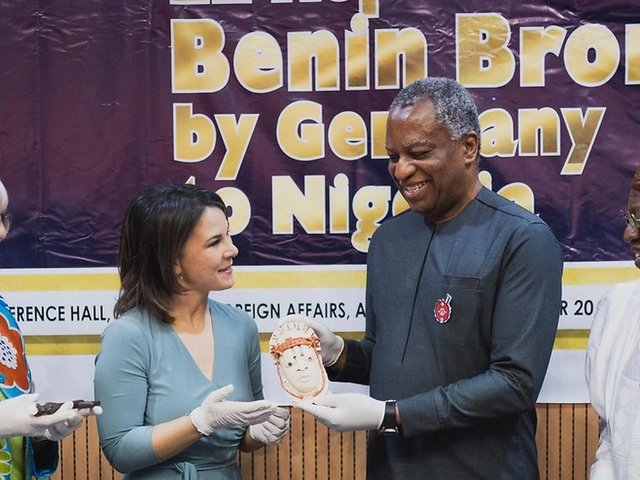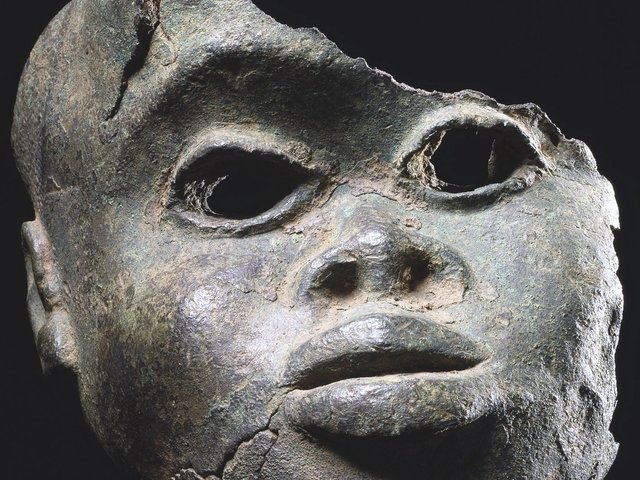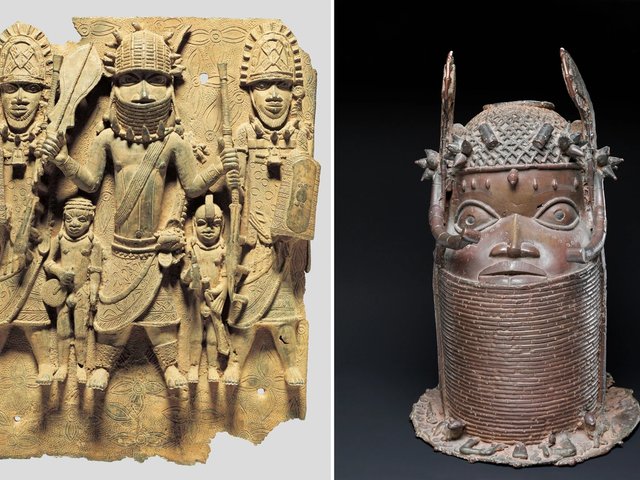The German government and the Nigerian National Commission for Museums and Monuments have signed a memorandum of understanding setting out a timetable for the restitution of artefacts looted from the royal palace of Benin in a British military raid in 1897.
The accord paves the way for a more formal contract to be signed later this year and envisages the transfer of ownership of about 1,100 so-called Benin bronzes from German museums to Nigeria in the second quarter of next year, according to Andreas Görgen, the head of the culture department at the German Foreign Ministry.
“With this accord, we have taken the next important step,” Görgen says. “Beyond the question of restitutions, we are shaping the future of cultural policy relations with Nigeria.”
The memorandum of understanding also lays out a framework agreement for joint projects in archaeology, education and museum infrastructure. Germany has agreed to contribute to the construction of a new museum to house the Benin bronzes near the royal palace in Benin City, the Edo Museum of West African Art.
Even after the ownership is transferred, some bronzes will remain in Germany at the wish of the Nigerian government, Görgen says, who signed the document in Abuja on behalf of the German government. Other objects will be shipped to Nigeria as soon as a space to house them is completed. A pavilion designed by David Adjaye is to serve as a temporary home until the Edo Museum of West African Art is built.
If archaeological work at the site near the royal palace and construction go ahead as planned, the pavilion could be completed towards the end of next year, Görgen says.
The 1,100 artefacts to be returned next year belong to the German museums with the biggest collections of Benin bronzes: ethnological museums in Berlin, Stuttgart, Cologne, Leipzig and Hamburg.
Berlin’s Ethnological Museum has the largest contingent of Benin bronzes in Europe after the British Museum. Of around 520 objects from the kingdom of Benin in the collection, around 440 can be traced back to the British raid.
“I am sure this cooperation will be a pioneering model for handling colonial looted art,” Hermann Parzinger, the president of the authority that manages Berlin’s state museums, said in a statement.
The largest German collections of Benin bronzes are listed online.





